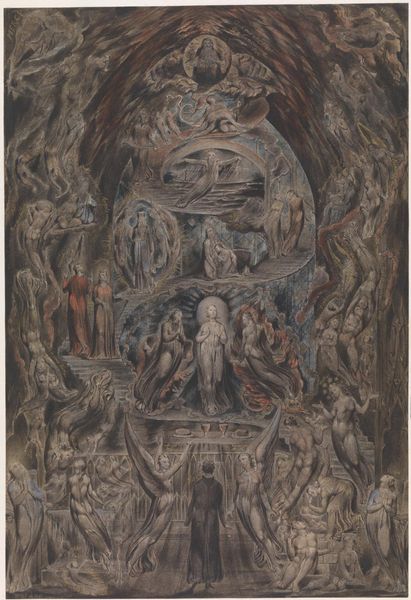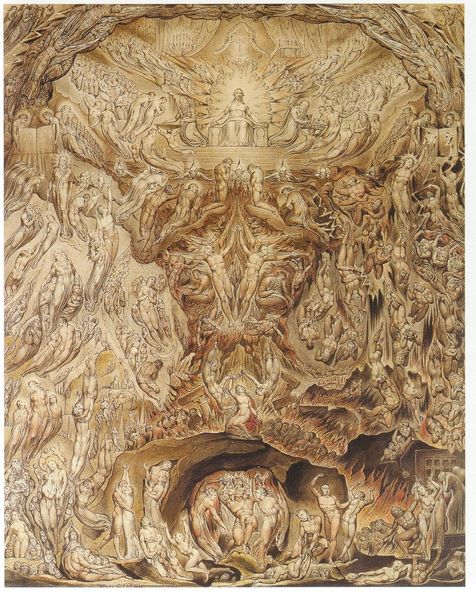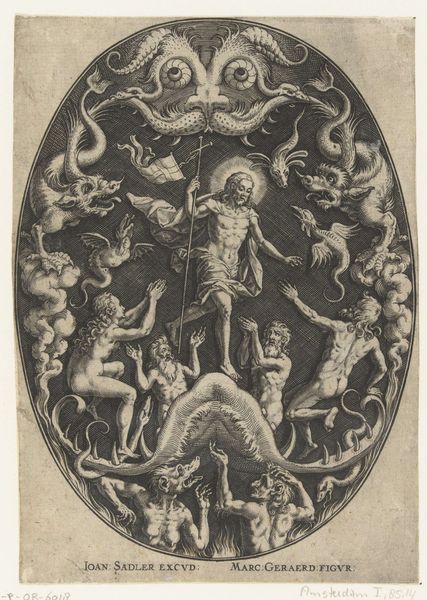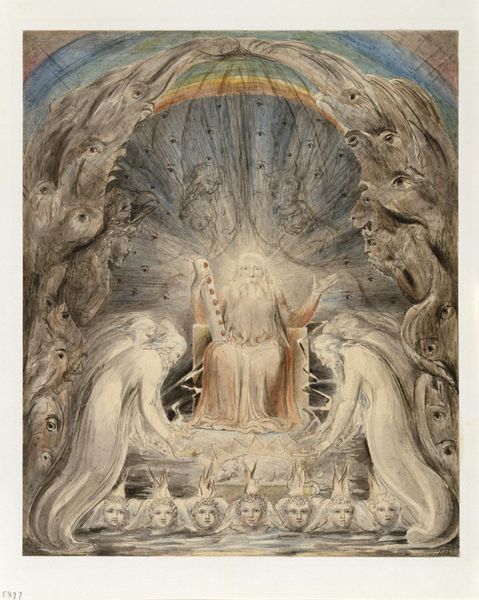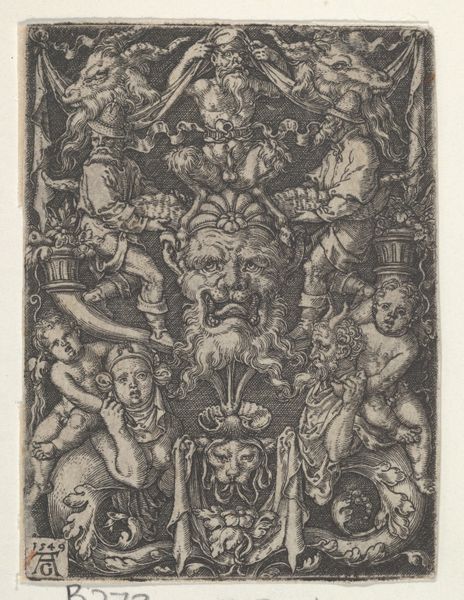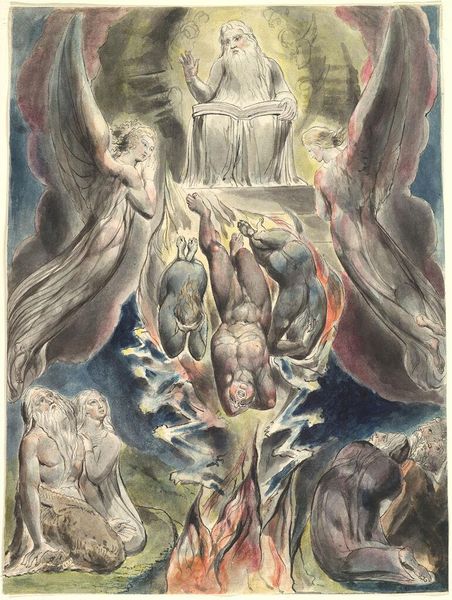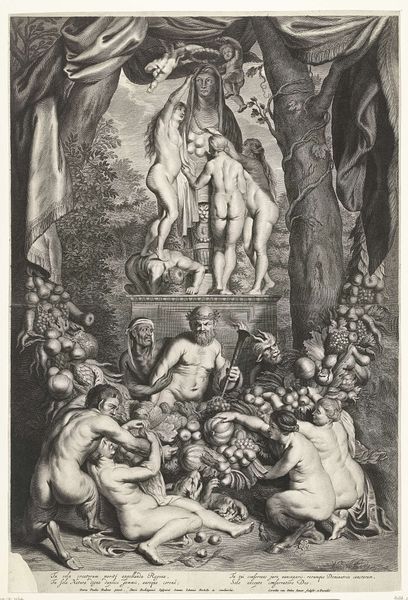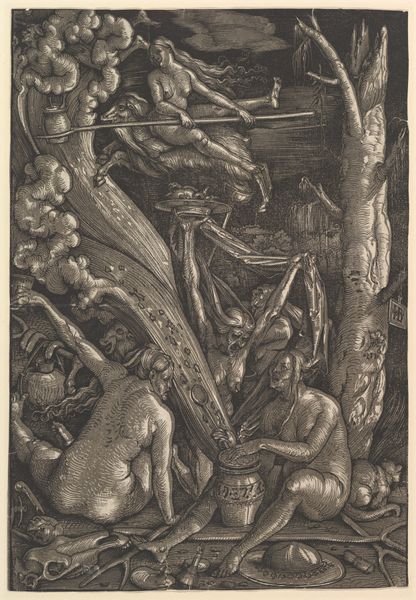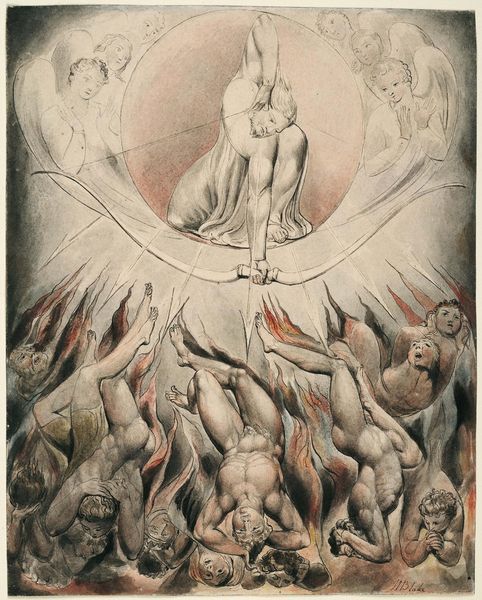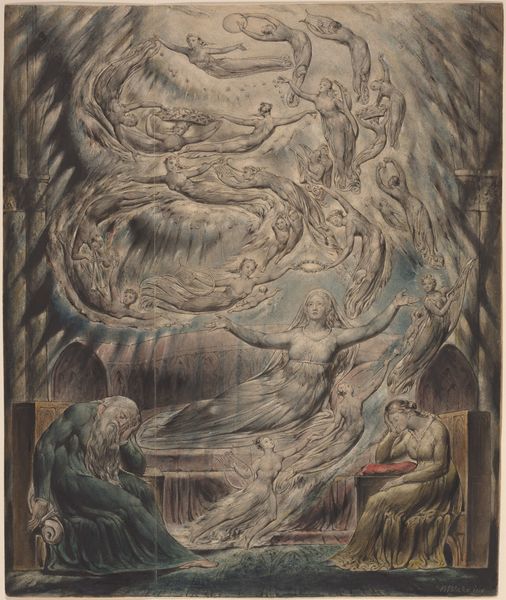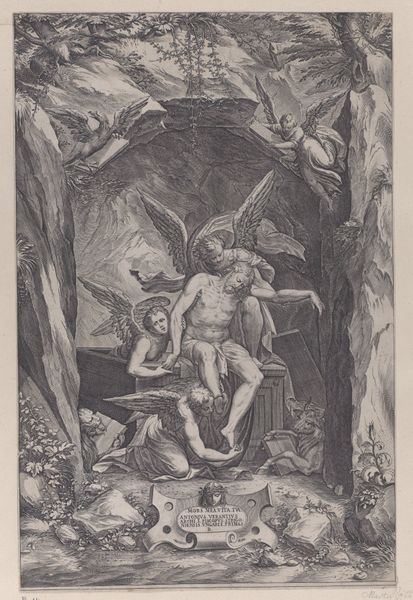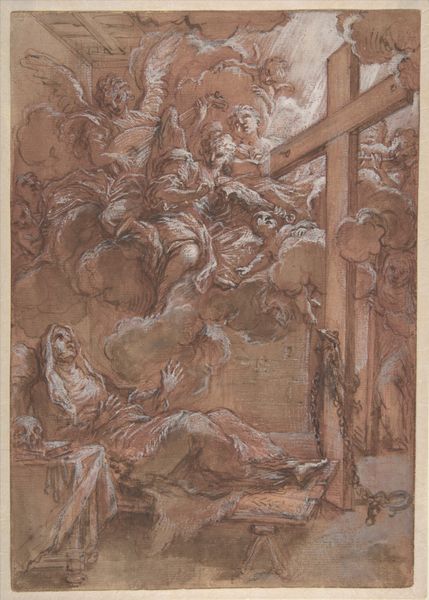
Dimensions: support: 431 x 292 mm
Copyright: NaN
Editor: This is William Blake’s ‘Epitome of James Hervey’s ‘Meditations among the Tombs’’. It’s difficult to put a date on it, but it's ink and watercolor on paper. The layers and figures give it such depth; what do you see in Blake’s rendering here? Curator: The materiality of the printmaking process is key. Consider the labour involved in etching the plate, a demanding, repetitive task. Blake used the means of production to subvert traditional notions of religious authority, mass producing his visions. Editor: So, the process itself was a form of rebellion? Curator: Precisely. By controlling production, Blake circumvented the established art market and disseminated his radical spiritual ideas directly. A truly material intervention! Editor: That reframes how I see Blake entirely. Thank you!
Comments
tate 10 months ago
⋮
http://www.tate.org.uk/art/artworks/blake-epitome-of-james-herveys-meditations-among-the-tombs-n02231
Join the conversation
Join millions of artists and users on Artera today and experience the ultimate creative platform.
tate 10 months ago
⋮
James Hervey (1714-58) was a writer of devotional texts. His popular Meditations Among the Tombs was published in 1746 and it was often reprinted. The subject of the book is death, and the author dwells particularly on the grief caused by early death, and on the eventual re-uniting of the parted in heaven. Hervey, his back to the viewer, is seen in the foreground of the picture. At the foot of the stair which winds heavenward to God, sits a widow with the bodies of her husband and children. Inscriptions beside the other figures help to explain the narrative.The design of this complex arrangement is similar to that of the celebrated painting of the Last Judgement in the Sistine Chapel in Rome by Michelango, an artist Blake admired. Gallery label, August 2004
